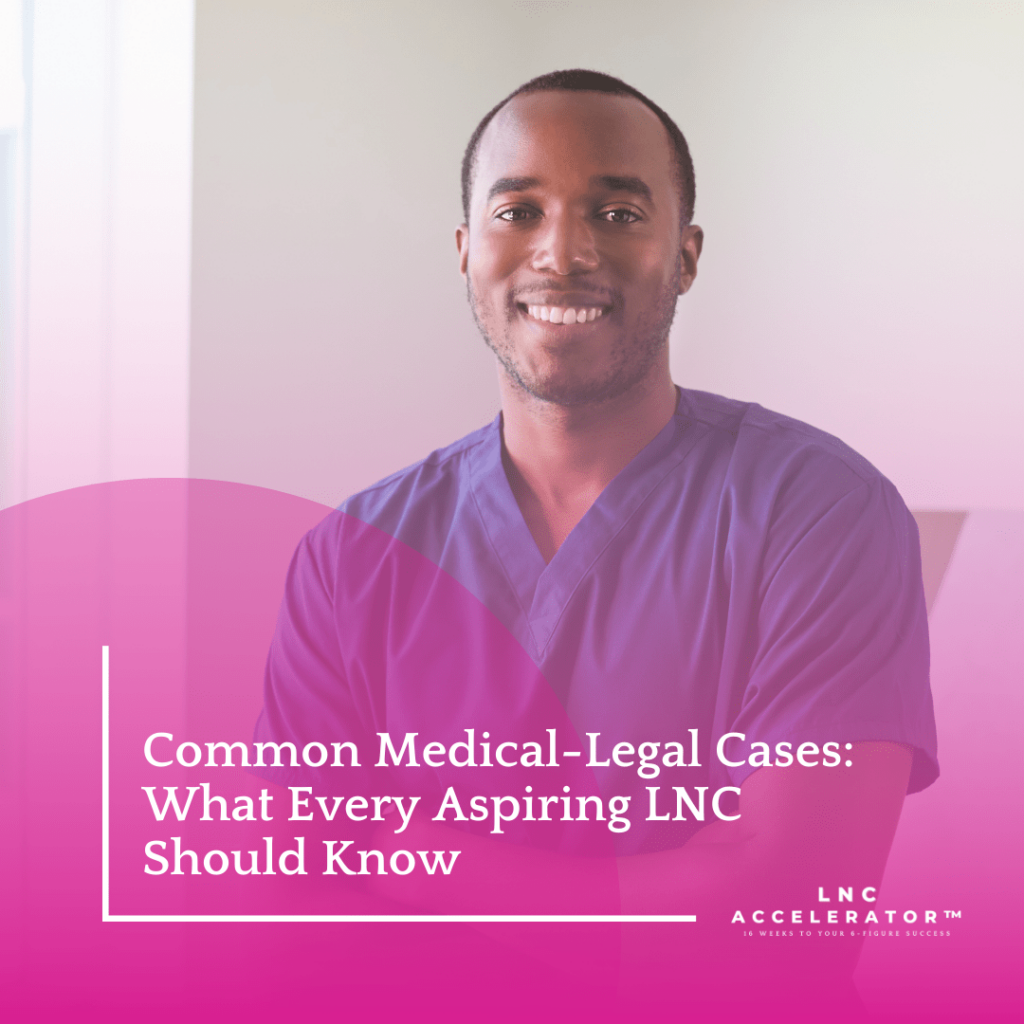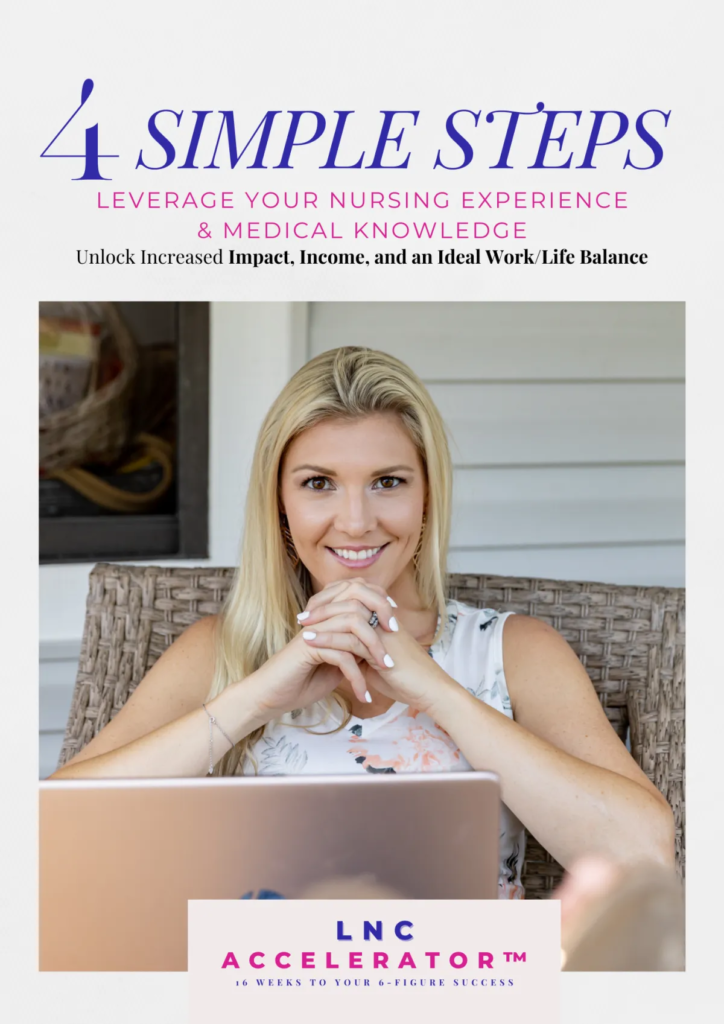
Common Medical-Legal Cases: What Every Aspiring LNC Should Know
Understanding the types of cases you’ll encounter as a legal nurse consultant helps you prepare for this rewarding career. Your nursing experience provides valuable insights into these cases, but viewing them through a legal lens requires additional perspective.
Medical Malpractice Overview
Medical malpractice cases form a significant portion of an LNC’s workload. These cases involve allegations that healthcare providers failed to meet the standard of care, resulting in patient harm.
Your nursing background helps you understand the complexities of healthcare delivery and the standards that guide practice. This knowledge proves invaluable when analyzing whether care met established standards.
Primary Case Types
Personal Injury Cases
Personal injury cases often require analysis of medical records to understand the extent of injuries and their impact on the person’s life. These cases might involve car accidents, workplace injuries, or other incidents causing harm.
As a nurse, you understand how injuries affect daily living and long-term health outcomes. This knowledge helps attorneys understand the full impact of injuries on their clients.
Workers’ Compensation
Workers’ compensation cases require understanding both injury mechanisms and recovery processes. Your experience with patient assessment and recovery helps evaluate claims and monitor treatment progress.
These cases often involve reviewing treatment plans, assessing work restrictions, and evaluating the appropriateness of care. Your clinical knowledge helps determine whether treatment aligns with the injury type and severity.
Specialized Cases
Product Liability
When medical devices or medications cause harm, product liability cases arise. These cases require understanding both the product’s intended use and how it may have caused injury.
Your clinical experience with medical devices and medications helps you understand how these products should work and what can go wrong. This knowledge proves valuable when analyzing causation.
Long-Term Care Cases
Cases involving nursing homes and long-term care facilities often focus on issues like falls, pressure injuries, or inadequate care. Your understanding of proper care standards helps identify deviations from accepted practice.
These cases frequently involve complex medical histories and multiple contributing factors. Your experience helps untangle these complexities and identify key issues.
Birth Injury Cases
Birth injury cases require understanding both normal labor and delivery processes and what can go wrong. These cases often involve detailed analysis of fetal monitoring strips, delivery notes, and newborn assessments.
Your knowledge of obstetric care helps evaluate whether providers responded appropriately to complications and followed established protocols.
Clinical Cases
Surgical Error Cases
Surgical cases might involve wrong-site surgery, retained objects, or post-operative complications. Understanding surgical protocols and expected outcomes helps evaluate whether proper procedures were followed.
Your experience with pre- and post-operative care helps identify deviations from standard practice that might have contributed to adverse outcomes.
Medication Error Cases
Medication errors can occur at various points in the medication use process. Your understanding of medication administration helps identify where errors occurred and how they might have been prevented.
These cases often involve analyzing medication records, ordering systems, and administration practices. Your knowledge of proper medication management proves essential.
Emergency Care Cases
Cases involving emergency care require understanding both standard emergency protocols and the challenges of providing care in urgent situations. Your experience helps evaluate whether providers made appropriate decisions under pressure.
These cases often involve complex decision-making in time-critical situations. Your clinical background helps assess the reasonableness of actions taken.
Documentation Issues
Many cases involve questions about the adequacy and accuracy of medical documentation. Your experience with healthcare documentation helps identify significant gaps or inconsistencies in records.
Understanding normal documentation patterns helps you recognize when records don’t reflect typical care practices or when important information is missing.
Building Your Expertise
As you encounter different case types, you’ll develop expertise in identifying key issues and analysis patterns. Each case type presents unique challenges and learning opportunities.
Stay current with healthcare practices and legal developments in these areas. Understanding evolving standards and regulations enhances your ability to analyze cases effectively.
Preparing for Cases
When approaching any case type, start with a systematic review process. Understand the specific legal issues involved and how they relate to the medical care provided.
Your role includes helping legal teams understand the medical aspects of their cases. Clear communication of complex medical issues becomes crucial.
The Value of Experience
Each case type you encounter adds to your expertise. While your nursing background provides a strong foundation, working with various case types deepens your understanding of medical-legal issues.
Remember that your clinical experience, combined with developed legal knowledge, makes you uniquely qualified to analyze these cases effectively.
Become a Legal Nurse Consultant
6 Figure Income Projection + Cases & Clients in 16 Weeks or Less...
(Or We’ll Work With You 1-On-1 For Free Until You Do)




